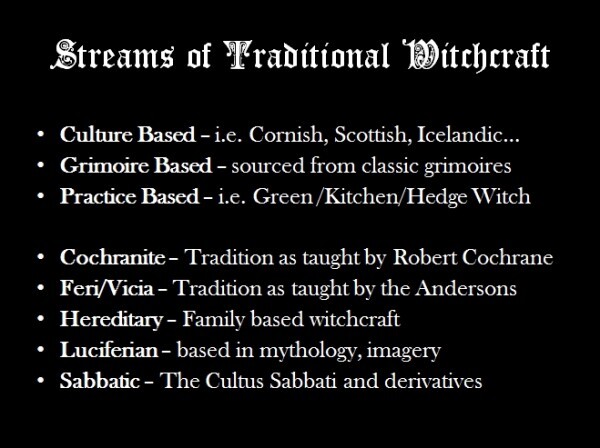 |
Magick
- From Thelemapedia A further revival of interest in magic was heralded by the repeal, in England, of the last Witchcraft Act in 1951 EV. This was the cue for Gerald Gardner, now recognized as the founder of Wicca, to publish his first non-fiction book Witchcraft Today, in which he claimed to reveal the existence of a witch-cult that dated back to pre-Christian Europe. Gardner's new religion combined magic andreligion in a way that was later to cause people to question the Enlightenment's boundaries between the two subjects. Gardner's new religion, and many imitators, took off in the atmosphere of the 1960s and 1970s, when the counterculture of the hippies also spawned another period of renewed interest in magic, divination, and other occult practices. The various branches of neo-paganism and other new earth religions that have sprung up in Gardner's wake tend to follow his lead in combining the practice of magic and religion. The trend was continued by some heirs to the counterculture; feminists led the way when some launched an independent revival of goddess worship. This brought them into contact with the Gardnerian tradition of magical religion, and deeply influenced that tradition in return. Wikipedia |
| Wicca
(English pronunciation:/ˈwɪkə/),
also termed Pagan Witchcraft, is a
contemporary
Pagannew
religious movement. It was developed in England
during the first half of the 20th century and was introduced
to the public in 1954 by Gerald
Gardner, a retiredBritish
civil servant. Wicca draws upon a diverse set of ancient
pagan and 20th
century hermeticmotifs
for its theological structure andritual
practice. Wicca has no central authority. Its traditional core beliefs, principles and practices were originally outlined in the 1940s and 1950s by Gardner and Doreen Valiente, both in published books as well as in secret written and oral teachings passed along to their initiates. There are many variations on the core structure, and the religion grows and evolves over time. It is divided into a number of diverse lineages, sects and denominations, referred to as traditions, each with its own organizational structure and level of centralisation. Due to its decentralized nature, there is some disagreement over what actually constitutes Wicca. Some traditions, collectively referred to asBritish Traditional Wicca, strictly follow the initiatory lineage of Gardner and consider the term Wicca to apply only to similar traditions, while newer eclectic traditions do not. Wicca is typically duotheistic, worshipping a Goddess and a God. These are traditionally viewed as the Moon Goddess and the Horned God, respectively. These deities may be regarded in a henotheistic way, as having many different divine aspects which can in turn be identified with many diverse pagan deities from different historical pantheons. For this reason, they are sometimes referred to as the "Great Goddess" and the "Great Horned God", with the adjective "great" connoting a deity that contains many other deities within their own nature. These two deities are sometimes viewed as facets of a greater pantheisticdivinity, which is regarded as an impersonal force or process rather than a personal deity. While duotheism or bitheism is traditional in Wicca, broader Wiccan beliefs range from polytheism to pantheism or monism, even to Goddess monotheism. Wiccan celebrations follow both the cycles of the Moon, known as esbats and associated with the Goddess, and the cycles of the Sun, seasonally based festivals known as Sabbats and associated with the Horned God. An unattributed statement known as theWiccan Rede is a popular expression of Wiccan morality, although it is not accepted by all Wiccans. Wicca often involves the ritual practice of magic, though it is not always necessary. Source: Wikipedia |
 |
| Witchcraft (also called witchery or spellcraft) broadly means the practice of, and belief in, magical skills and abilities that are able to be exercised individually by designated social groups, or by persons with the necessary esoteric secret knowledge. Witchcraft is a complex concept that varies culturally and societally; therefore, it is difficult to define with precision[1] and cross-cultural assumptions about the meaning or significance of the term should be applied with caution. Witchcraft often occupies a religious, divinatory or medicinal role,[2]and is often present within societies and groups whose cultural framework includes a magical world view.[1] Although witchcraft can often share common ground with related concepts such as sorcery, the paranormal, magic, superstition, necromancy, possession,shamanism,healing, spiritualism, nature worship and the occult, it is usually seen as distinct from these when examined by sociologists andanthropologists. Source: Wikipedia For more info, see the following web page: |
 |
Dancing with the Dark Side - An Interview with a Former Witch |
|
| --- TESTIMONY OF AN EX-WITCH John Todd was born into a Witchcraft Bloodline of a very high degree. He met Jesus and was born again. His testimony and efforts to save other witches and occultists, exposed the illuminati and cost him his life.
Part 1 http://www.youtube.com/watch?v=7Nf8WPQT4WE
---Part 2 http://www.youtube.com/watch?v=LrZai...eature=related Part 3 http://www.youtube.com/watch?v=IDK1B...eature=related Part 4 http://www.youtube.com/watch?v=9SP-Q...eature=related Additional video: John Todd on his experience in the Music Industry http://www.youtube.com/watch?v=3_p14...eature=related |
-- |
| Excerpts
taken from: In And Out Of Wicca - A Former Wiccan Speaks By A Former Wiccan http://www.spiritwatch.org/pagtest1.htm |
 |
 |
| METHODS
OF WITCHCRAFT SUBLIMINAL MANIPULATION 1 |
METHODS
OF WITCHCRAFT SUBLIMINAL MANIPULATION 2 |
Do You Believe in Magick Continued in part 15 - Satanism